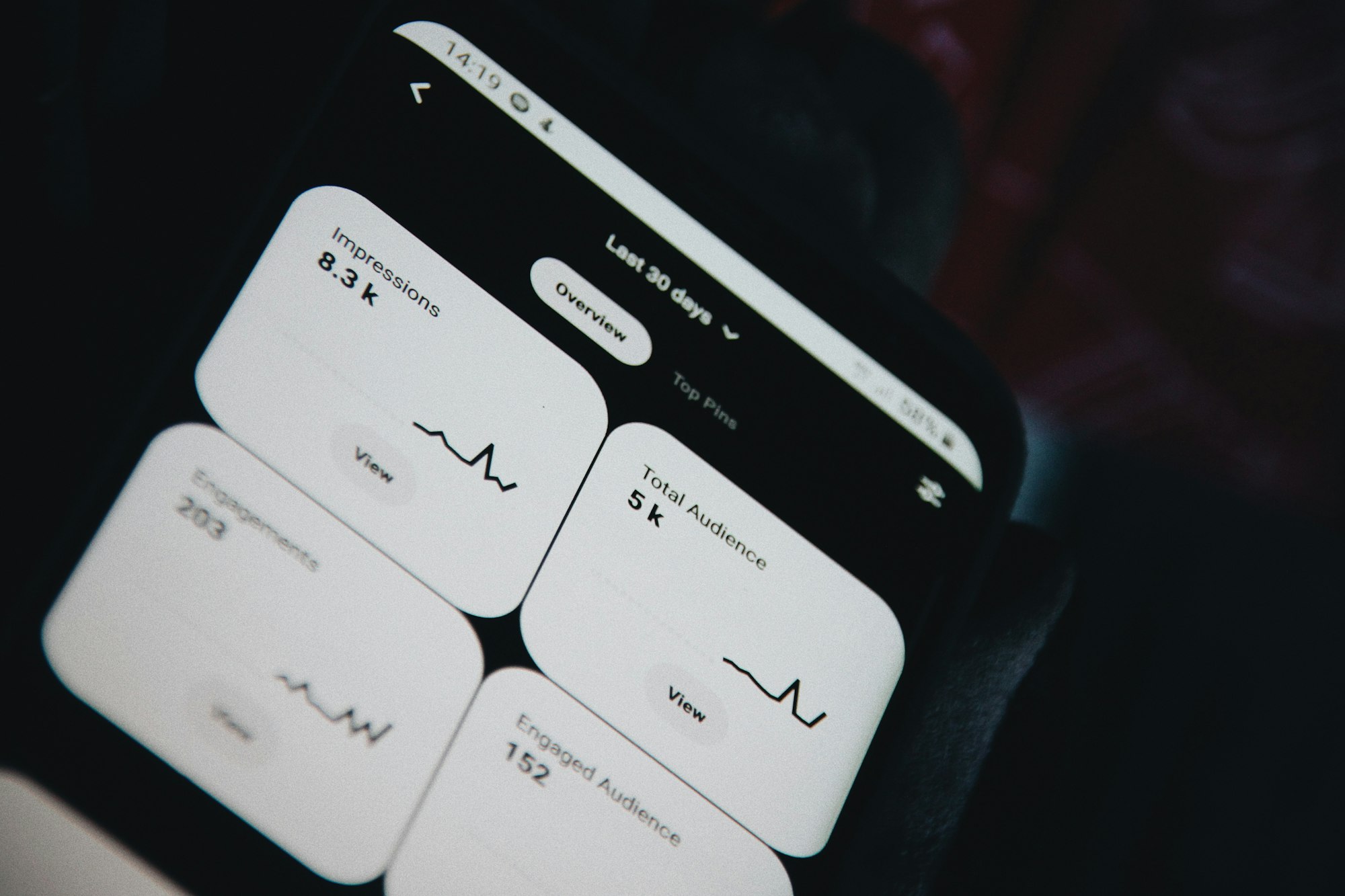11 Ways to Prove That B2B Podcasting Drives Results

In the early days of content marketing, many B2B marketers found it difficult to prove the value of their efforts to company executives. After all, it can be hard to measure the impact of something that happens over a long period of time. In recent years, podcasting has emerged as a powerful content marketing tool for B2B businesses. And thanks to new distribution methods, new technologies, and new measurement tools, it's now easier than ever to prove the ROI of your podcasting efforts.
If you're looking to prove the value of podcasting to your company, we've put together 11 ways to do it.

Show How Much Engagement is Driven by Your Podcast
One way to show the value of your podcast is by looking at the engagement metrics on the channels you promote and distribute your amplification content. Are people liking the podcast? Sharing clips? Do they comment with their thoughts and questions? Measuring the engagement with your podcast can give you a good idea of how valuable it is to your audience.

Look at Brand Awareness Metrics
If you're looking to increase brand awareness for your business, podcasting can be a great way to do it. There are a number of ways to measure brand awareness, but one easy way is simply to track how many people are talking about your brand online. Set up a Google Alert for your brand name and see how often it pops up in the results. If you see a significant uptick after launching your podcast, that's a good sign that you're increasing awareness of your brand.
Track Website Traffic From Podcast Links
Another way to measure the ROI of your podcast is by looking at the website traffic that comes from your show notes page and shared content. Every episode of your podcast should have a corresponding show notes page on your website with links to all of the resources mentioned in the episode. You can track how much traffic these pages are getting using Google Analytics or another web analytics tool. If you see an increase in traffic after launching your podcast, that's a good sign that momentum is building.
Look at Lead Generation and Sales Metrics
If your goal is to generate leads and drive sales with your podcast, there are a number of ways to track those results. One way is to simply ask your sales team how many leads they are getting that can be traced back to the podcast. You can also look at web forms and other conversion data to see if there's been an uptick in submissions associated with your podcast. When you ask inbound leads, "How did you find us?", a large subset may begin to answer that they discovered you through your podcast.
Check Out Download and Listen Stats
Finally, it's important to track how many people are actually downloading and listening to your podcast episodes. This information can be found in most podcast hosting platforms like Apple Podcasts or Stitcher. If you see a consistent increase in downloads and listens over time, that's a good sign that your audience is growing and your podcast is driving results.
BONUS: Podcasting Acts a Content Engine In Ways No Other Format Can
A single long-form conversation can be repurposed into blog posts, audio clips, video clips, quote cards, social copy, social images, promotional content, and more. By leveraging the content you already have, you can get more mileage out of your podcast and create more touch-points with your audience. By increasing your output, your B2B podcast is clearly driving results for your marketing team.
Podcasting can be a powerful content marketing tool for B2B businesses, but it's important to measure the ROI of your efforts. By looking at engagement metrics, brand awareness data, website traffic stats, lead generation numbers, and download and listen figures, you can get a good sense of how successful your podcast is and how it's benefiting your business.
CMOs and CEOs want to see results. Content marketing is a long term game, without measurable success akin to that which you would get with PPC campaigns. Nonetheless, it is increasingly easy to prove the success of your podcast, or establish that there are measurable data points on which to judge success in the future if you are discussing podcasting as a content strategy.
Beyond the measurable data, how do podcasts provide value that other mediums can't? Podcasting is a powerful B2B marketing tool because it offers several advantages over other types of content.
Podcasts Build Trust
Through podcasting, your audience feels like they know you – which builds trust. More than written blog posts or even videos, podcasting builds a close relationship with listeners. Driving conversions in B2B marketing and sales is about building trust with your ICP. They have to trust that you empathize with their challenges and are the foremost expert on solving them.
Podcasts Are Flexible
Podcasts can be consumed while working on other tasks, giving your listeners the opportunity to engage on their terms. People can listen while they commute, work out, or do other activities. This flexibility allows you to reach more people in more situations.
Podcasts Are Shareable
Your audience can share your podcast with anyone they think would benefit. If they like the episode, they can easily share it via email, social media, or even in person. This word-of-mouth marketing is one of the most powerful forms of distribution and growth.
Podcasts Are Evergreen
Compelling stories, tales of triumph, and informative, educational content never go out of style. If you're providing real value to your listeners, it wont matter if they find you today, tomorrow, or next year. Podcasts continue to generate authority, leads, and sales long after they are published.
Podcasts Build Authority
As your podcast grows in popularity, so does your stature as an expert in your industry. As you continue to produce quality episodes, you'll become known as a thought leader, and your audience will begin to see you as a trusted source of knowledge.
After reading all this, you may be more convinced than ever that podcasts have a major impact on marketing and branding campaigns - but many people still ask, "Is the market too saturated already? How can I stand out?"
Everyone has a blog - but you need one, too. Everyone produces video, but you should still produce it, too (I think you can see where this is going).
Plenty of organizations have podcasts, but that shouldn't deter you from starting one. With a sound, strategic approach to content production and repurposing/amplification, the sky is the limit for your podcasting success. As you continue to produce great episodes, you'll build a passionate audience of listeners who will advocate for your content and brand.
The great thing about podcasts is that there are so many niches to choose from. There's a podcast for just about everything, and that means there's always room for more quality content. When you're planning your B2B podcast strategy, think about what makes your business unique and how you can appeal to a specific audience. If you can create and own a category of one, you've struck gold.

If you need help getting started with your B2B podcast, we're always here to chat. We'd love to hear from you.

